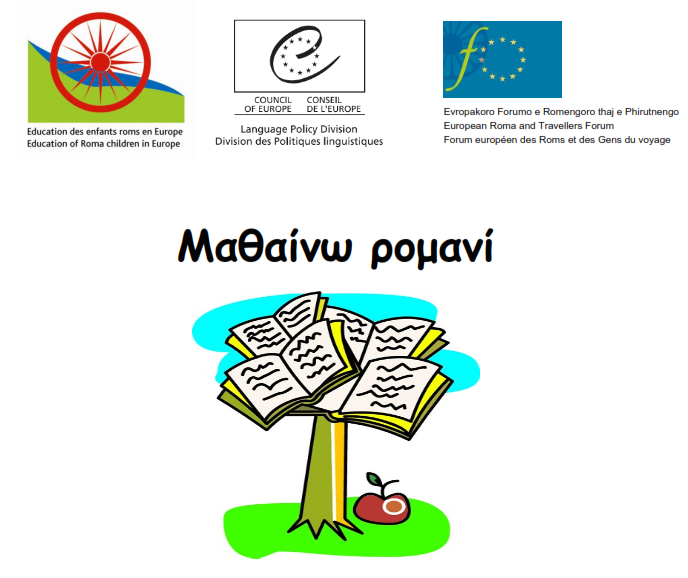The Romani project
Beginning during the academic year 2022-23, our school participates in the program: "The role of the Romani language in the educational integration of Roma children and youth: from policy to practice".
The Council of Europe is a family of 47 states stretching from Iceland to Azerbaijan. The millions of young people living in these countries have many common experiences and interests, but also different language, culture and history.
Despite the Council of Europe's decades of engagement with Roma issues, the inclusion of Roma children and adolescents in education still presents significant challenges for member states. The successive recommendations of the Committee of Ministers are clear in terms of the political principles and social values that should shape the policy, and they are equally clear in terms of the results that should be achieved by the implementation of the policy. However, they do not address the policy aspects that shape teaching practices in the classroom.
In 2018-19 a Council of Europe expert group sought to fill this gap by proposing new ways of managing the educational inclusion of Roma children and adolescents in schools and classrooms. The proposals of this group, which have implications for the educational inclusion of other linguistic and cultural minorities, are based on two principles that are fundamental to the work of the Council of Europe in language education:
- Students of a language are also its users, social agents with personal pursuits.
- Language education should take into account all the languages and cultures represented in a given educational context and help students develop comprehensive multilingual repertoires and intercultural awareness.
The purpose of the Council of Europe is to help students to understand and respect other people and what makes them different. The concept of multilingual and intercultural education of the Council of Europe can be transformed into teaching practices in the classroom which ensure the educational inclusion of students from linguistic minorities.

School Activities
Activities of A' and B' Elementary
- As part of the Skills Workshop
- Making Christmas ornaments. With the cooperation of the Roma center of the local government and the participation of the mediators, the students created group Christmas ornaments with which they enriched the school's Christmas tree.
- In the context of the Christmas celebration, where the students collaborated and presented a theatrical performance entitled "Santa Claus is on a diet". The performance was accompanied by songs and actions in the Roma language
- The grocery store of multilingualism and inclusion. Children learn the nutritional value of vegetables and fruits for their proper development. Making a collage with fruits and vegetables.
Activities of the 3rd Primary School
Actions of D Elementary School
- As part of the Nutrition Skills Workshop
- Presentation of the book "The Gift of the Quilt", with the participation of executives from the Roma Aliveriou branch. actions followed, (discussion about the fairy tale and the value of the offering, recording the emotions of the heroes, collages, crafts) where the children expressed themselves in both languages they speak (Greek and Romani).
Activities of the 5th grade
- From German class
Activities of the 6th grade
- As part of the I'm Interested and Acting Skills Workshop
- Actions, Photo 1
- As part of the celebration for November 17
- Creation of an e-book with the words of the celebration poem.
- From German class
School actions
- Musical instruments of the world and Roma ( photo 1 )


